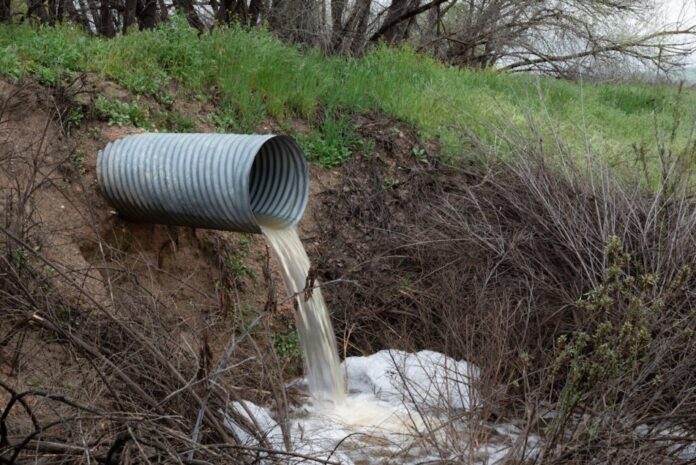On April 11, the Trump administration announced that it would be terminating a historic settlement negotiated by the Biden Administration that would have improved wastewater treatment for majority-Black communities in Alabama, calling the settlement an “illegal DEI and environmental justice policy.”
According to Inside Climate News, the settlement had been negotiated by former President Joe Biden’s Department of Justice and the Department of Health and Human Services with officials in Alabama, marking the first time that federal civil rights laws were used to ease the impact of environmental racism.
According to Assistant Attorney General Harmeet K. Dhillon from the Justice Department’s Civil Rights Division, “The DOJ will no longer push ‘environmental justice’ as viewed through a distorting, DEI lens. President Trump made it clear: Americans deserve a government committed to serving every individual with dignity and respect, and to expending taxpayer resources in accordance with the national interest, not arbitrary criteria.”
This move concerns the community’s residents.
“The Agreement provides aid to people so lacking in basic water and sewer facilities that they must pipe sewage away from their homes,” Brock stated to Inside Climate News. “What is at stake are legitimate concerns for their health and their rights to humane living conditions. Revoking those promises based on disfavored buzzwords is arbitrary, inhumane, and ignores the substance and purposes of the Agreement.”
As BLACK ENTERPRISE previously reported, the Alabama Department of Public Health formerly held that the only barriers to them addressing sewage issues in the state were the ability or resources to manage said issues.
Now, Ryan Easterling, the Department of Public Health’s spokesperson, seems to have changed that tune, saying that they don’t have the authority to manage sewage issues in rural areas.
“The installation of sanitation systems and related infrastructure is outside the authority or responsibilities conferred upon ADPH by state law,” Easterling said via email. “Nonetheless, ADPH will continue working with subgrantees on installation of septic systems as contemplated by the Interim Resolution Agreement until appropriated funding expires.”
United States Rep. Terri Sewell (D-AL) disputed the characterization of the Trump administration, saying that the agreement had nothing to do with DEI, but instead, represented a public health crisis.
“It was about addressing a public health crisis that has forced generations of children and families to endure the health hazards of living in proximity to raw sewage, as the DOJ itself documented,” Rep. Sewell said. “By terminating it, the Trump Administration has put its blatant disregard for the health of my constituents on full display.”
Rep. Sewell continued, “Access to adequate wastewater infrastructure is a basic human right. Without support from the Trump Administration, it is vital that the Alabama Department of Public Health continue to do its part to remedy this injustice. I will continue fighting to address Alabama’s rural wastewater crisis and get our communities the infrastructure they deserve.”
RELATED CONTENT: Alabama’s Lowndes County Has No Municipal Sewer Service, The 1964 Civil Rights Act May Change Things For The Mostly Black County
